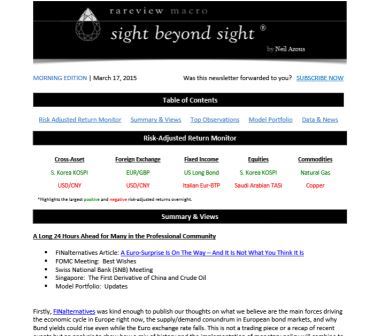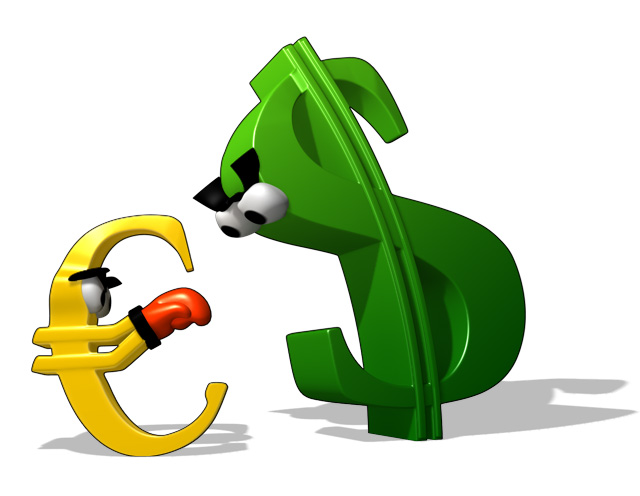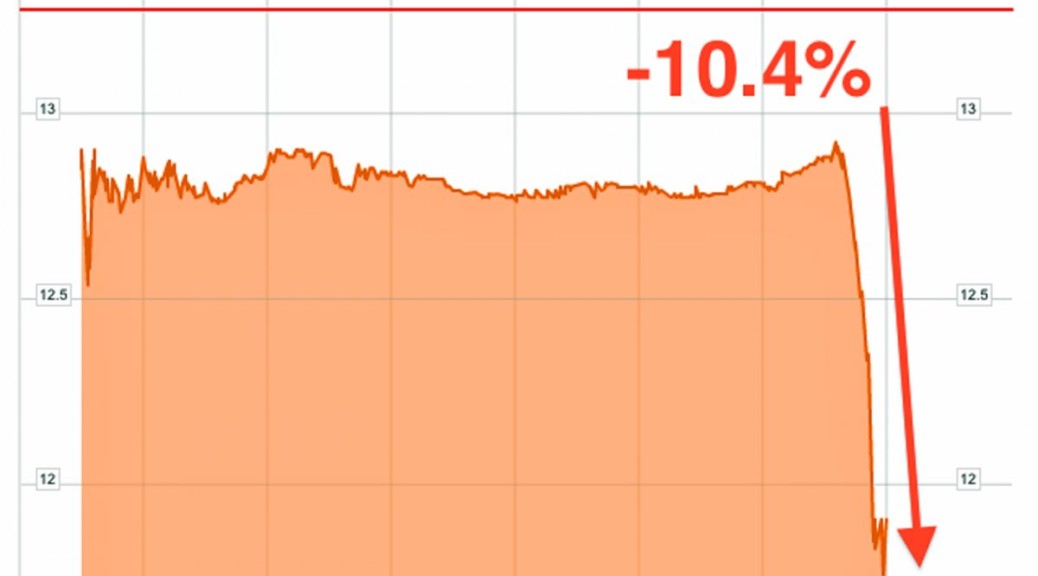MarketMuse update is courtesy of Business Insider’s Sam Ro
MarketMuse has previously reported on the volatility the Greece elections created early this year now even more problems have ensued for the country. Following the the European Central Bank’s announcement that it lifted its waiver on minimum credit rating requirements for marketable instruments issued or guaranteed by Greece, Greece’s ETF crashed leaving just ruins left.
The Greek stock market closed hours ago, but the exchange-traded fund that tracks Greek stocks, GREK, crashed during the final minutes of trading in the US markets.
The euro is also getting walloped, falling 1.3% against the US dollar.
This comes following bad news from the European Central Bank (ECB) to Greece’s debt-laden banks.
Shortly after 3:30 p.m. ET, the ECB announced that it lifted its waiver on minimum credit rating requirements for marketable instruments issued or guaranteed by Greece.
To put it another way, Greek banks can no longer exchange their junk-rated sovereign bonds for cash.
“The waiver allowed these instruments to be used in Eurosystem monetary policy operations despite the fact that they did not fulfill minimum credit rating requirements,” the ECB said in a press release. “The Governing Council decision is based on the fact that it is currently not possible to assume a successful conclusion of the programme review and is in line with existing Eurosystem rules.”
“In other words, the ECB doesn’t see Greece complying with existing bailout rules,” Bloomberg’s Lorcan Roche Kelly explained.
However, it’s not all bad. The ECB has another way for Greek banks to exchange their securities for liquidity. The cost of borrowing will however be higher.
“Liquidity needs of Eurosystem counterparties, for counterparties that do not have sufficient alternative collateral, can be satisfied by the relevant national central bank, by means of emergency liquidity assistance (ELA) within the existing Eurosystem rules,” the ECB said.
“The move from the ECB today is a copy of the suspension of Greek debt that occurred in February 2012,” Kelly noted.
“For Greek banks, this move by the ECB will not directly be a disaster as they have reduced their exposure to the Greek sovereign since 2012 and so are less reliant on that debt as collateral,” Kelly argued.
Still, it appears to be more bad than good. And judging by the reaction in the currency and equity markets, investors and traders were hoping for better.
For the original article, click
here.





